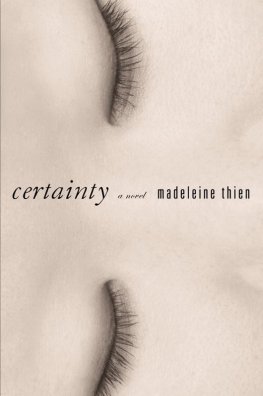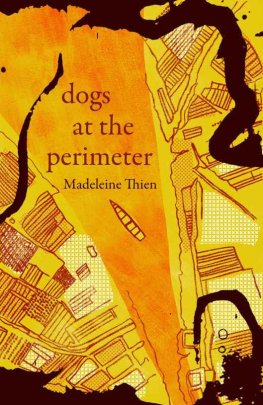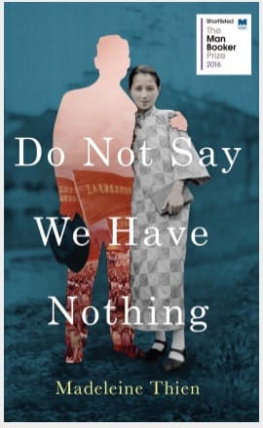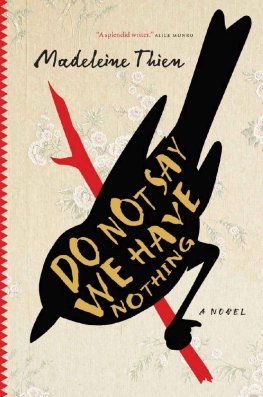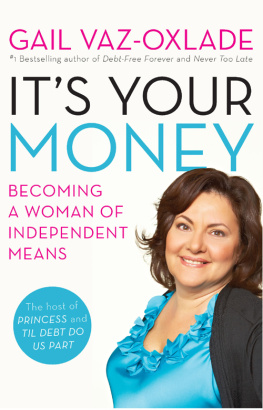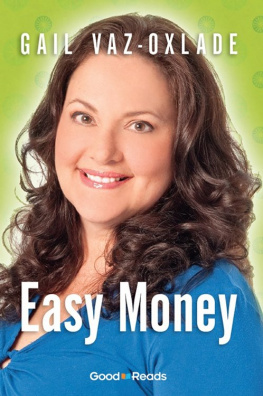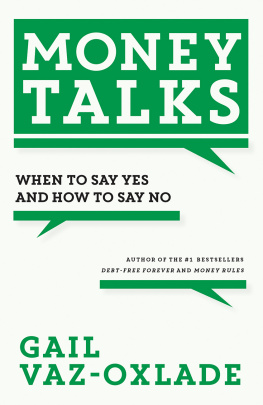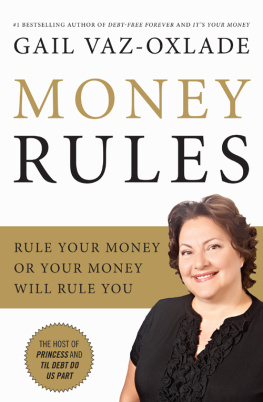For we convinced physicists the distinction between past, present, and future is only an illusion, however persistent.
Albert Einstein, from a letter of condolence to the family of Michelangelo Besso
He said we could face the worst if we simply renounced our yearning for certainty. But who among us is capable of that renunciation?
Michael Ignatieff, from The Needs of Strangers
VANCOUVER, CANADA
In what was to have been the future, Ansel rolled towards her, half awake, half forgetful. He curved his body around hers and Gails warmth drew him back into sleep. Morning passed into afternoon, the rest of the world waited outside, but he and Gail were just rising from bed, they were fumbling into their clothes, they knew that the day was long.
Some of her work, the tapes and reel-to-reel, are in the house. Some in the attic of her parents house, and some in her former office. When Ansel listens to them, the finished and the unfinished work, the quality of the recording is fine, as if Gail is in the room herself, her voice preserved on a quarter-inch strip of tape.
There is a sunroom at the front of the house where Ansel drinks his coffee. Across the street, their neighbour is crouched on the ground, snipping the grass with a pair of scissors. Because of the noise, she says. A lawnmower makes far too much noise. She is in her mid-sixties and the wide brim of a sun hat shades her face. Gail, who had grown up in a house a block away, once told Ansel that she remembered this same woman snipping the grass when Gail herself was a child. All the kids would come with their plastic scissors and help her out. It was a kind of neighbourhood haircut. Every now and then, Mrs. Cho stands up and massages her lower back. She looks over at Ansel seated alone in the window, lifts her hand to him in greeting.
The coffee is warm and sweet. He closes his eyes and drinks it, and when he opens his eyes again, Gail is still there, a presence in the room, the undercurrent of his thoughts.
It is almost seven oclock. The sun is up, and it pours a warm, golden light across the houses. Last night, he couldnt sleep, and this morning his body feels hollow, a loose string that folds naturally over itself. On the table in front of him, a sheaf of papers: Gails radiology report, her EKG chart, the pages creased from too much handling. Outside, the branches of the sakura tree flutter in the wind. The tree blooms in March, and by April the blossoms are so heavy all the branches are weighted down. By May, the yard is a snowbank of petals.
Ansel and Gail bought this house ten years ago, in the early-1990s. He had just finished his residency, and Gail was working as a radio producer, making features and documentaries. The house is in Strathcona, the oldest neighbourhood in Vancouver. Even now, the Hastings Mill cabins, where workers lived a century ago, still stand. Past the bustle of Chinatown, the downtown core floats like a picture hung against the North Shore mountains. East, and the mills are visible, Ballentyne Pier, with its brightly coloured stacks of containers, and the tall freight elevators.
Theirs is a restored Queen Anne, gabled windows on the top floors. A solid, unremarkable house. On windy days, he imagines he can feel the wooden beams of the house swaying.
Previous homes together had been small apartments in basements or attics, the two of them tucked in amongst their belongings. Now there are books and records and an old piano. Gails hand-carved Indonesian box. Ansels antique microscope; once, they had spent the afternoon looking at odds and ends. He remembers an onion skin, elegant in its simplicity, the cells stacked together like brickwork.
There is the understanding that she is no longer here, that it was sudden and irrevocable, but this understanding is one moment spread over a thousand hours, a continuous thought that tries to forget itself. And then, when that fails, to bargain, to change everything, to fall asleep and go back to another point in time. Time, Gail had said once, as he fell asleep in her arms, is the only thing we need.
At Strathcona Elementary School, the Sunday morning tai chi class is already in motion. He can see them through the fence as he walks, grandparents in neon track suits, moving across the pavement in an ensemble, a fluid echo of cause and effect. Bird plucking a leaf from the tree. Hands separating heaven from earth. Gail had listed these off for him. Epic names for the smallest gestures. Together, they step purposefully across the chalk lines for hopscotch and four-square.
Ansel buys his breakfast at the New Town Bakery, where a woman wearing a blank name tag gives him a paper bag filled with warm bread. He continues through Chinatown, past the tanks of melancholy fish. Vegetables spill out from the markets, and the street lamps, recently painted a festive red, glow in the early morning.
After the service, the flowers had followed her across the city, from Hastings Street to 49th Avenue. The houses giving way to Central Park, giving way to the burial grounds. The workers arranged the tall flower stands in concentric circles around her grave, making a perfumed forest. He walked into it and in the centre he found her. Each night the rain knocked them down, the wind scattered the petals across the cemetery, and every day he set them up again. One afternoon, he arrived in the middle of a storm. He raised the flowers up onto their stands, and they collapsed on top of him. He hugged them to his body and lifted them up once more.
Half a year has gone by since then, but this morning, when he walks along the pebbled road beside False Creek, his thoughts return to that small plot of land and the flowers he laid there yesterday. His friend Ed Carney once spent an entire morning giving Ansel his thoughts on passing time. Times arrow pointing in both directions, the past flying into view as you stumble backwards into the future, Walter Benjamins angel of history. Ed had mused about scientists who experimented with their circadian rhythms, re-establishing themselves on a twenty-six-hour clock. Mostly they had the police after them, wondering what trouble they were up to. The conversation had ended there. Ed had gone back to mowing his lawn, and Ansel had continued walking.
Now he sits on the dock at the creek, the moored boats swaying with the current, and he eats his breakfast. Sunday morning and the city is still sleeping, but she is there beside him, running her feet through the water. That is another timeline, the morning of Gails last birthday, fall and not summer. Their last conversation was a telephone call, long distance. His memories struggle to stay afloat, time moves forward, and Ansel feels the divide in his body. One part of him carrying on, living moment to moment, the other part lost to him on the day she died.
In the afternoon, he walks down the street to Keefer and Princess, to the two-storey that belongs to Gails parents. Along the way he passes dry lawns, cascading sprinklers, crooked hopscotch drawings, an arrow drawn in chalk, pointing for an instant at his feet, with the words Typical homo sapiens. When he arrives, Gails parents are in the kitchen. Matthew is stooped in front of the sink and Clara is at the counter. Ansel leaves his sandals at the kitchen door and enters barefoot. Immediately, the soles of his feet are covered with flour.
Youre early, Clara says, pleased.
The counter is an avalanche of green vegetables. Something that smells sweet and tangy is simmering on the stove. He says, Ive come to help.
Gails father turns, one hand still holding the cleaver. He looks panicked at the suggestion.
Wonderful, Clara says. We still have plenty of time. She gestures him towards the seat across from her.

